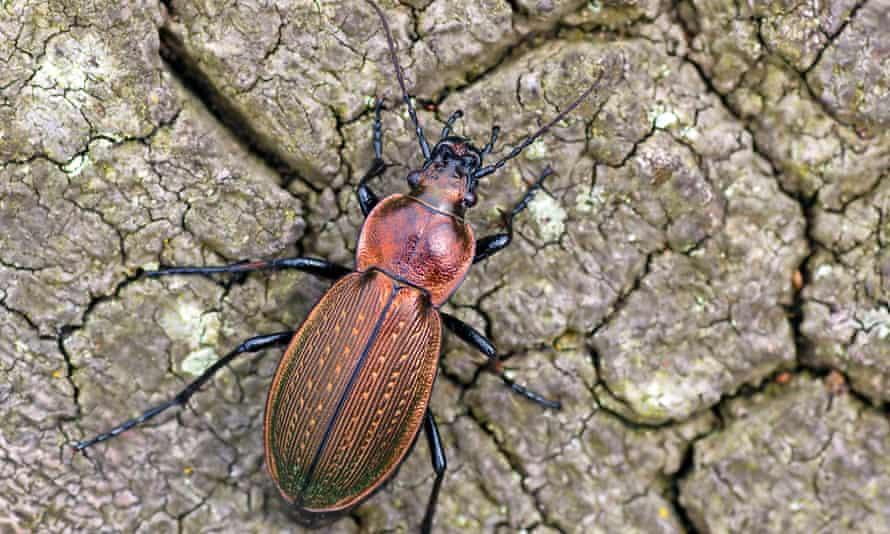Specieswatch: the necklace ground beetle – an endangered and flightless friend to farmers
England is one of the last strongholds of this beautiful insect but it is at risk due to excessive pesticide use

Organic farming is probably the best hope for the survival of one of Britain’s least known but valuable wild creatures, the necklace ground beetle, Carabus monilis.
Once widespread but now on the red list as endangered because of excessive pesticide use and changing farming practices, it needs help to survive. Since it eats many insects that feed on farm crops and the seeds of weeds that farmers want to control any help it gets to thrive will be richly rewarded.
About an inch (22-25mm) long, it has a green to copper metallic look and a sculptured pattern on its back that looks like a necklace, hence its name. The beetle was one of 10 species named by the ARC 2031 project that seem likely to go extinct in Britain in the next decade without our help. It matters because the beetle is useful but also because it is native to this part of Europe, and England is one of its last strongholds. It has already been lost from Scotland and not been seen recently in Ireland.
Its handicap is that it does not fly so has to walk to new habitats. The UK government has listed fertiliser-free grasslands, hedgerows and wide field margins as vital elements for survival.